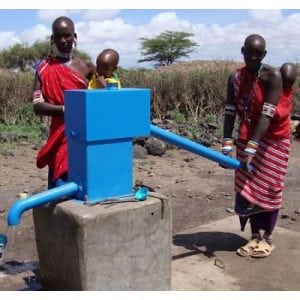
Agriculture
December 26, 2023
BluePump
Read SolutionImplemented by
BOODE Inc
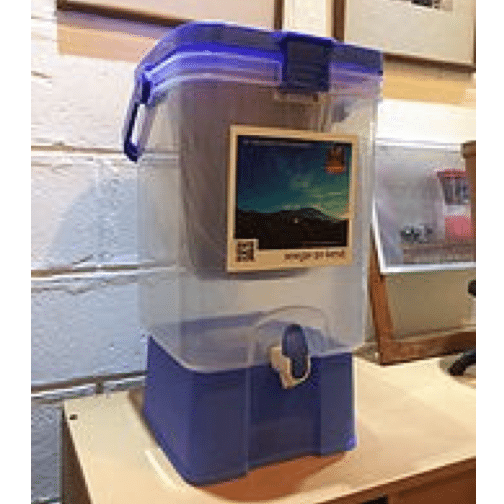
Updated on December 13, 2023
·Created on May 27, 2016
TCM manufactures ceramic pot water purifiers, inspired from the technology introduced by Potter for Peace.
Tirta Cupumanik (TCM) are silver enhanced ceramic ‘pot’ water filters for household drinking water treatment manufactured in Indonesia based on the open source technology promoted by Potters for Peace.
Target SDGs
SDG 6: Clean Water and Sanitation
SDG 1: No Poverty
Market Suggested Retail Price
$50.00
Target Users (Target Impact Group)
Household
Distributors / Implementing Organizations
Manufacturer in partnership with the Ministry of Research & Technology has established a business unit responsible for marketing and distribution, individual sales.
Countries
Indonesia
Manufacturing/Building Method
Locally sourced clay and risk husks are processed, mixed with water, pressed into the filter shape and fired to a ceramic state, flow rate tested to ensure product consistency and coated with silver nitrate solution. It is made of a mixture of clay and rice husk burnt about 600-800º C which in turn produces a ceramic pot through a vitrification process (changing the nature of clay to ceramic). Ceramic properties that can absorb oxygen produce fresh drinking water such as jug water.
Intellectural Property Type
Open-source
User Provision Model
Users can obtain the product through market-based sales, NGOs, other organizations and institutions.
Distributions to Date Status
Unknown
Type of filter
Ceramic pot filter
Primary material of construction
Filters are manufactured with clay, rice husk, silver nitrate.
Additives
There is a potential for silver in filtered water, below secondary guideline values of 0.1 mg/L
Manufacturer-specified flow rate (L/hr)
1–3.5 liters per hour when full
Bacteria reduction
2 log
Virus reduction
Unknown
Protozoa reduction
Unknown
Heavy metals and/or arsenic reduction
TCM is only suitable to treat water which doesn’t have hazardous metals in it
Maximum recommended influent turbidity level (NTU)
5 NTU
Effluent turbidity levels (NTU)
99% removal for <5 NTU
Maintenance schedule
When the filtration rate reduces it can be cleaned up with a scrub pad and water, but soap should not be used.
Manufacturer-specified lifetime volume (L)
~35,000 L
Safe water storage integration
Depends on size of receptacle, ~6 L
Design Specifications
The product consists of ceramic pots which have taps and lids attached. It comes in 4 different varieties based on the quality of outer body and size.
Specifications: Height: 48 cm; upper diameter: 35 cm; unit weight: ~8 kg. Flow rate 1-3.5 liters per hour.
Technical Support
To rejuvenate flow rate when filters clog, users scrub ceramic filtering element with a brush.
Replacement Components
Available locally: tap for dispensing water, safe storage container, ceramic filtering element.
Lifecycle
2-3 years depending on turbidity of source water
Manufacturer Specified Performance Parameters
Performance targets 2 log reduction in bacteria, and to some extent reduces iron and manganese content in the water.
Vetted Performance Status
The product has been recognised and supported by international organisations as well as government.
Safety
TCM is suitable to treat only low turbidity water which doesn't have hazardous metals in it
Complementary Technical Systems
Pre-filter or settle very turbid water (>5 NTU).
Academic Research and References
“Tirta Cupumanik (TCM) Ceramic Water Filter,” Techxlab.org. Available: https://www.techxlab.org/solutions/yayasan-tirta-indonesia-mandiri-cupumanik-tcm-ceramic-water-filter
Goal 6. (n.d.). Sdgs.un.org. Available: https://sdgs.un.org/goals/goal6
“My Site,” Tcm-filter.com. Available: http://www.tcm-filter.com/
“Rujukan,” Tcm-filter.com. Available: http://www.tcm-filter.com/rujukan.html
“filter,” Tcm-filter.com. Available: http://www.tcm-filter.com/filter.html
Compliance with regulations
Currently household water treatment technologies are not regulated in Indonesia.
Evaluation methods
Factory carries out quality control evaluations and water quality is tested at a local accredited laboratory.
Other Information
None

Agriculture
December 26, 2023
Implemented by
BOODE Inc
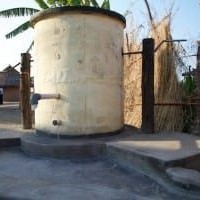
Agriculture
December 26, 2023
Implemented by
Pump Aid
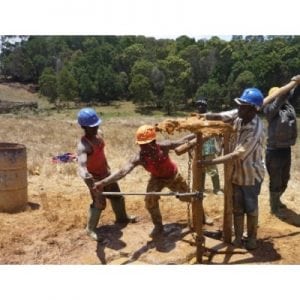
Agriculture
January 10, 2024
Implemented by
Southern Highlands Participatory Organisation (SHIPO)
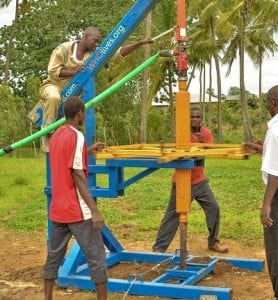
Agriculture
January 10, 2024
Implemented by
Brigham Young University
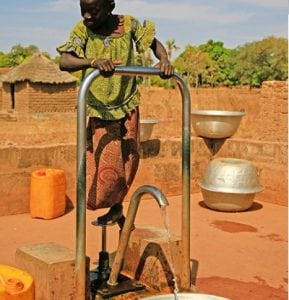
Agriculture
December 27, 2023
Implemented by
Vergnet-Hydro
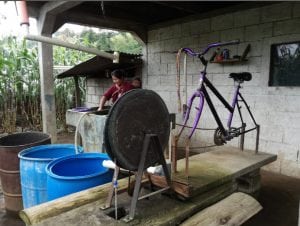
Agriculture
December 22, 2023
Implemented by
Bici-Tec
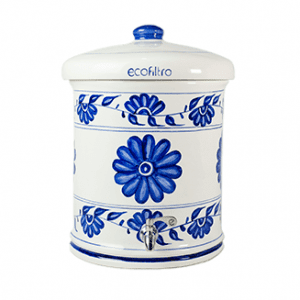
Agriculture
December 7, 2023
Implemented by
Ecofiltro
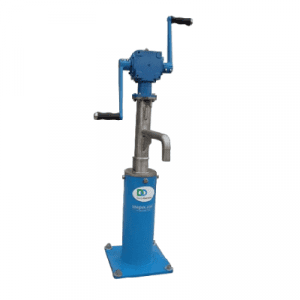
Agriculture
December 27, 2023
Implemented by
Design Outreach
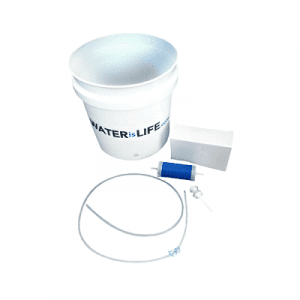
Agriculture
January 2, 2024
Implemented by
Water is Life
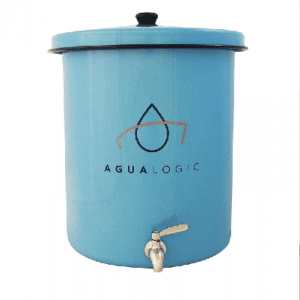
Agriculture
December 7, 2023
Implemented by
Agualogic
Have thoughts on how we can improve?
Give Us Feedback